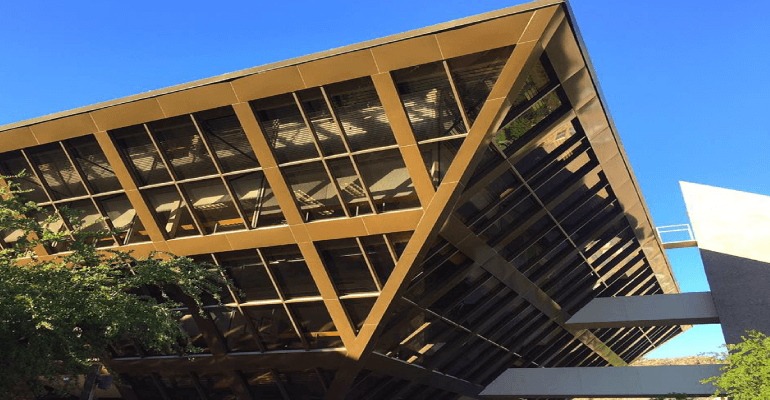
On Thursday, the Arizona Attorney General issued a finding that the City of Tempe’s noise regulation does not conflict with State law. The Attorney General’s Office’s opinion was issued in response to a question by State Rep. Jill Norgaard.
Norgaard asked:
● Do the statutory amendments enacted by Laws 2016, Chapter 208, Senate Bill 1350 (“S.B. 1350”) prohibit or restrict counties and municipalities from enforcing local noise regulations?
● Does the City of Tempe’s (“Tempe”) specific noise regulation conflict with the statutory amendments enacted by S.B. 1350?
Attorney General’s opinion:
SUMMARY ANSWER
No. The statutory amendments enacted by S.B. 1350 do not prohibit counties and municipalities from enforcing generally-applicable local noise regulations that are part of residential use and zoning ordinances.
No. Tempe’s noise regulation does not conflict with the State laws enacted through S.B. 1350 because, consistent with the language enacted through S.B. 1350, the regulation generally applies to all residential property within the city.
BACKGROUND
In 2016, with S.B. 1350, the Legislature enacted statutory amendments to expressly permit vacation and short-term rentals statewide. See 2016 Ariz. Sess. Laws ch. 208, §§ 1-2. 1 In pertinent part, S.B. 1350 added what is now Arizona Revised Statutes (“A.R.S.”) §§ 9-500.39 and 11-269.17, which establish how and to what extent municipalities and counties respectively may regulate such rentals. Both statutes define “vacation rental” and “short-term rental” as “any individually or collectively owned single-family or one-to-four-family house or dwelling unit or any unit or group of units in a condominium, cooperative or timeshare, that is also a transient public lodging establishment or owner-occupied residential home offered for transient use [excluding property that is commercial, industrial, or subject to any nonresidential use].” A.R.S. §§ 9-500.39(D)(2), 11-269.17(D)(2).
These statutes limit the authority of municipalities and counties to discriminatorily regulate vacation and short-term rentals, but do not bear on the authority of these political subdivisions to regulate vacation and short-term rentals through use and zoning ordinances of general application. Indeed, S.B. 1350 explicitly affirms that residential use and zoning “ordinances related to noise, protection of welfare, property maintenance and other nuisance issues” apply to vacation and short-term rentals as long as the regulation “is applied in the same manner” as to other residential property. A.R.S. §§ 9-500.39(B)(2), 11-269.17(B)(2).
ANALYSIS
1. The Relevant Statutes Enacted By S.B. 1350 Do Not Entirely Preclude Local Regulation Over Vacation and Short-Term Rentals.
The plain language of the relevant statutes explicitly provides that counties and municipalities can regulate vacation and short-term rentals in their jurisdictions by enforcing residential use and zoning ordinances that include generally-applicable noise regulations. The first step in statutory interpretation is to look at the language of the statute itself. Bilke v. State, 206 Ariz. 462, 464 ¶ 11 (2003). The plain language of a statute must be applied “without resorting to other methods of statutory interpretation, unless application of the plain meaning would lead to impossible or absurd results.” Id. (internal quotation marks and citations omitted). Moreover, the plain language of the statutes is consistent with the Arizona Constitution’s mandates that county and city charters, and the local laws enacted pursuant to such charters, be “consistent with, and subject to, the Constitution and the laws of the state.” See Ariz. Const. art. XIII § 2, art. XII § 5(F); see also State ex rel. Brnovich v. City of Tucson, 242 Ariz. 588, 607 ¶¶ 80-81 (2017) (Bolick, J. concurring in part and in the result); State v. Coles, 234 Ariz. 573, 574, ¶ 6 (Ct. App. 2014) (“[w]hen an issue affects both state and local interests, municipalities may address the issue by enacting and enforcing relevant laws unless specifically preempted by state law.”). Even when State law restricts what political subdivisions may do in a particular policy area, local provisions nevertheless may be effective if the local law is “capable of peaceful coexistence” with State law. See Jett v. City of Tucson, 180 Ariz. 115, 121 (1994) (citation omitted).
No conflict arises between the relevant statutes and local noise regulations if the local regulations are generally applicable to other residential properties. Even though the relevant statutes restrict local regulation of vacation and short-term rentals, the statutes expressly permit “residential use and zoning ordinances, including ordinances related to noise . . . if the ordinance is applied in the same manner as other property classified under [A.R.S.] §§ 42-12003 and 42-12004.”2 A.R.S. §§ 9-500.39(B)(2), 11-269.17(B)(2). Accordingly, these statutory provisions do not exempt vacation and short-term rentals from generally-applicable local noise regulations and local authorities would not run afoul of these State statutes by commonly enforcing such regulations.
2. Because Tempe’s Noise Regulation Is Generally Applicable, It Does Not Conflict With State Law And Generally Can Be Enforced Against Vacation and Short-Term Rentals.
Tempe’s noise regulation is squarely within what A.R.S. § 9-500.39(B)(2) expressly allows municipalities to promulgate and enforce. Tempe’s noise regulation does not mention short-term or vacation rentals, and it facially regulates all residential property concerning acceptable noise levels for different parts of the day. See City of Tempe Code § 20-6. Although a provision that imposed special or differing requirements on vacation or short-term rentals likely would conflict with A.R.S. § 9-500.39, there are no such special provisions in Tempe’s noise regulation. As previously noted, generally-applicable noise regulations fall within a statutory provision that permits municipal regulation of vacation and short-term rentals. See A.R.S. § 9-500.39(B)(2). Accordingly, because Tempe’s noise regulation falls within what A.R.S. § 9-500.39(B)(2) allows, neither Tempe’s regulation nor typical enforcement of that regulation by Tempe would generate a conflict with State law.
CONCLUSION
The plain language of the statutes enacted by S.B. 1350 provides that generally-applicable county and municipal residential use and zoning ordinances regulating noise apply to vacation and short-term rentals. Accordingly, such regulations may be enforced in the normal course. Because Tempe’s noise regulation is generally applicable, there is no facial conflict between it and State law.
